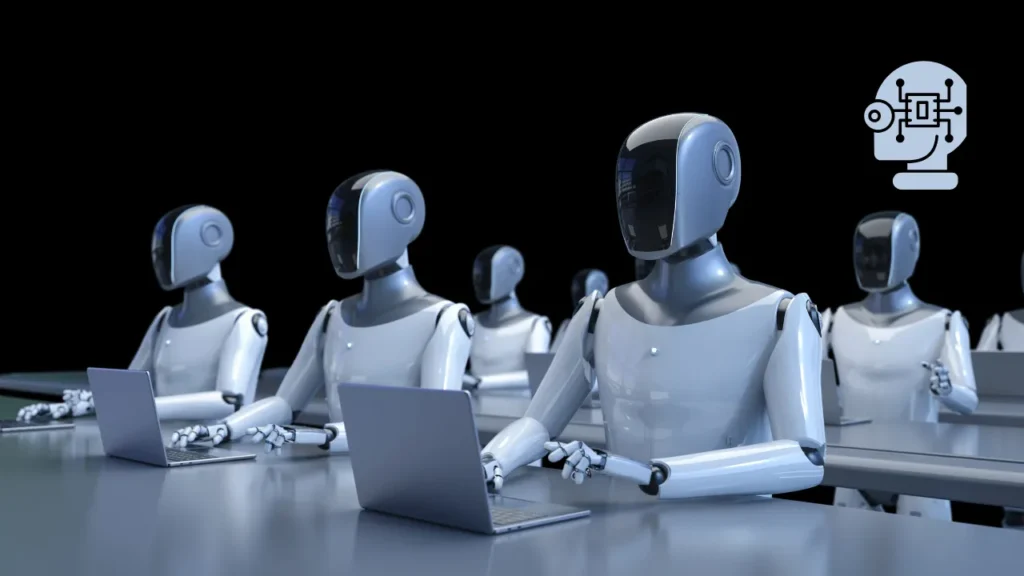How could generative AI be helpful to society in ways that go beyond just chatbots and art?
With technology evolving at lightning speed, we should ask how these programs shape education, healthcare, and daily life.
So, how could generative AI be helpful to society, really?
Generative AI is already transforming society by enhancing medical diagnostics, driving personalized education, and streamlining content creation. From automating tedious tasks to sparking innovation in research, it is proving to be a potent technology.
Experts including Dr. Fei-Fei Li emphasize its potential to augment human intelligence, not replace it. Real-world applications are emerging across industries, and the possibilities keep expanding.
To avoid AI detection, use Undetectable AI. It can do it in a single click.
Table of Contents
What is Generative AI?

Based on pre-existing data that it has been trained on, generative AI is a kind of artificial intelligence that can produce new text, image, audio, and video content. This branch of artificial intelligence uses generative models to create new data, frequently by identifying patterns and structures in the training set.
Read Also >>> Generative AI Vs ML
Large datasets are used to train generative AI models, which then learn to identify patterns and connections in the data. These models can produce new data after they have been trained that is similar to the training data but not an exact replica.
Examples of generative AI models are:
- Google’s Gemini
- Stable Diffusion
- Dall-E 2
- Amazon Bedrock
- GPT-3 and GPT-4
How Could Generative AI Be Helpful to Society?

Enhancing Education and Learning
By providing individualized learning experiences, automating content creation, and improving accessibility for students with a range of requirements, generative AI is transforming education.
Effective and pleasurable learning experiences may arise from its ability to design personalized learning pathways, produce interesting instructional materials, and offer real-time support.
Revolutionizing Healthcare
By improving patient care, accelerating drug discovery, and improving diagnostics, generative AI is revolutionizing the healthcare industry. In addition, it can help close the access gap to healthcare, automate tasks, and customize treatment plans.
However, cautious change management and ethical considerations are necessary for successful implementation.
Boosting Creativity and the Arts
The way artists approach their craft could be completely transformed by the incorporation of generative AI into the creative process. Artists can concentrate on their primary vision and creative expression by using generative AI to solve technical problems and expedite the creation of intricate elements.
Generative AI programs can serve as creative assistants and improve artistic processes. In addition, generative AI programs can help artists streamline their creative process and automate repetitive tasks.
Improving Accessibility and Inclusion
Video captions and audio descriptions can be produced by generative AI models, improving accessibility for those with visual impairments and those who are deaf or hard of hearing. In addition, generative AI models can translate speech to text and text to speech.
Prosthetics that are tailored to meet each user’s specific requirements can be created via generative AI. By testing websites and digital products for accessibility, generative AI can assist developers in identifying and fixing accessibility problems before they become public.
Advancing Scientific Research
By helping with tasks such as hypothesis generation, experiment design, and data analysis, generative AI accelerates scientific research. In addition, it can produce simulations and predictions quickly than conventional techniques, which accelerates innovation and discovery.
Accurate and intricate scientific visualizations can be produced by generative AI. The process of planning and refining experiments can be automated with AI. Large datasets can be accurately and swiftly analyzed by AI, which can also spot patterns and insights that humans might consider time-consuming.
Driving Innovation in Business and Productivity
Businesses are changing because of generative AI’s ability to increase productivity and spur innovation in a variety of industries. It helps businesses become creative, efficient, and customer-focused by automating processes, producing original content, and enabling tailored interactions.
Chatbots with AI capabilities can answer common consumer questions. AI is capable of optimizing ad campaigns, personalizing email campaigns, and automating content creation. AI is capable of producing 3D models, simulating product performance, and designing new products.
Businesses may identify and prevent fraud by using AI to find patterns and anomalies in large datasets.
Supporting Environmental Sustainability
Through resource optimization, enhanced data analysis for accurate decisions, and innovation in sustainable responses, generative AI can promote environmental sustainability.
AI is capable of data analysis to forecast energy consumption, maximize waste collection, and even create new materials for ecologic products. It can also support sustainable agricultural practices, climate modeling, and the optimization of renewable energy.
FAQs: How Could Generative AI Be Helpful to Society?
What is generative AI?
Generative AI refers to a subset of artificial intelligence that focuses on creating new content, such as text, images, music, or even videos, based on patterns learned from existing data. It functions by using complex algorithms and models to understand the structure of the input data and then generate new outputs that resemble that data.
For instance, an AI program such as ChatGPT uses deep learning techniques to produce natural language responses that are coherent and contextually relevant.
How could generative AI improve productivity in various industries?
Generative AI can significantly enhance productivity by automating repetitive tasks and assisting in creative processes.
For example, in marketing, AI systems can generate compelling ad copy and design ideas, allowing teams to focus on strategy rather than execution.
Furthermore, AI-driven automation programs can streamline processes, reducing time spent on mundane tasks and increasing efficiency.
What are some specific applications of generative AI in business?
The application of AI in business is vast. Generative AI can help create personalized customer experiences through chatbots that understand natural language and can respond intelligently to inquiries.
In addition, businesses can use generative AI to generate data-driven insights, optimize supply chains, or even develop new products based on consumer demand trends, showcasing the impact of generative AI on business and society.
Can generative AI contribute to inclusivity?
Yes, generative AI has the potential to foster inclusivity by helping to create content that caters to diverse audiences.
For instance, it can generate multilingual content or tailor marketing materials to different cultures and demographics.
By understanding various market segments, businesses can use AI technologies to verify that their offerings are accessible and relevant to every potential consumer thus promoting an inclusive environment.
How may generative AI transform education?
Generative AI can revolutionize education by providing personalized learning experiences.
For example, AI systems can analyze students’ learning patterns and generate tailored study materials or quizzes that meet their unique needs.
Conclusion: How Could Generative AI Be Helpful to Society?
As we have explored throughout this blog, how could generative AI be helpful to society is not just a question — it is a gateway to transformative possibilities.
From revolutionizing healthcare diagnostics to boosting creativity in content creation and supporting education through personalized learning, generative AI holds the potential to enhance lives across the globe.
While challenges remain in areas such as ethics, bias, and regulation, the responsible development and use of generative AI can lead us toward a smarter, inclusive, and efficient society. The key lies in how we choose to integrate it into our lives.
How do you think generative AI could be helpful to society in the next 5 years?
Drop your thoughts in the comments below!


